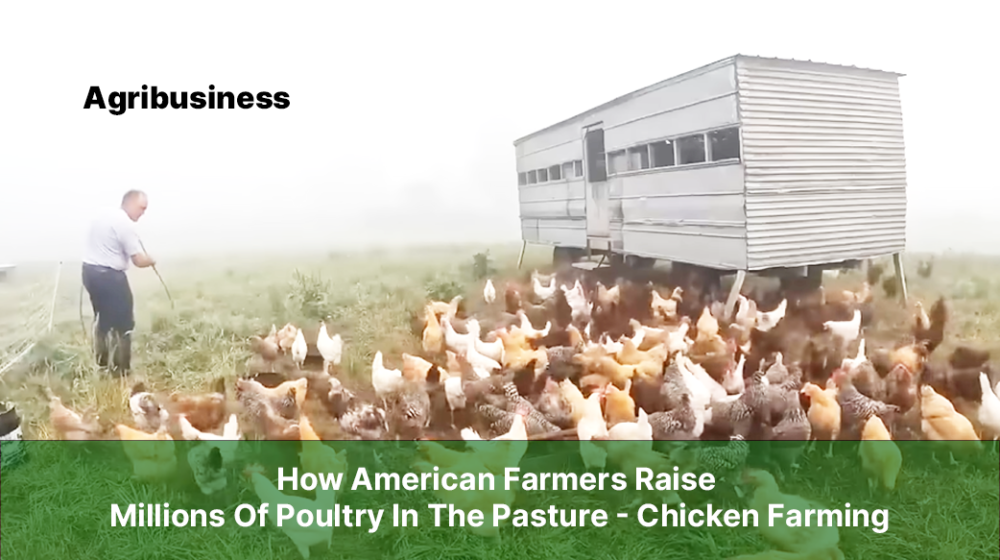In recent years, there has been a significant shift in the way American farmers raise poultry. With a growing demand for ethically produced, healthy, and environmentally friendly food, pasture chicken farming has gained popularity. This article explores the methods and benefits of raising poultry in pastures, highlighting the practices adopted by American farmers to meet consumer demands.
Importance of Pasture Chicken Farming
H1: Embracing Sustainable Agriculture Practices
Sustainable agriculture has become a crucial aspect of modern farming. Pasture chicken farming plays a pivotal role in promoting sustainable practices by offering a natural habitat for chickens and reducing the environmental impact caused by conventional poultry farming methods.
H2: Meeting Consumer Demand for Ethical Food
Consumers are increasingly concerned about the welfare of animals and the impact of farming practices on the environment. Pasture-raised poultry allows farmers to provide ethically produced, high-quality chicken to meet the demand for food that aligns with consumers’ values.
Advantages of Pasture-Raised Poultry
H1: Natural Habitat for Chickens
Pasture chicken farming provides a more natural habitat for chickens, allowing them to exhibit their natural behaviors and have access to fresh air, sunlight, and open spaces. This environment promotes the overall health and well-being of the birds.
H2: Benefits of Grass-Feeding Chickens
Unlike conventionally raised poultry, pasture-raised chickens have the opportunity to graze on a diverse range of plants, insects, and seeds. This natural diet contributes to the flavor and nutritional value of the meat, resulting in healthier and more flavorful chicken.
Sustainable Farming Practices
H1: Rotational Grazing
Farmers practicing pasture chicken farming utilize rotational grazing techniques, where chickens are moved to fresh pastures regularly. This method prevents overgrazing, allows the land to rejuvenate, and reduces the need for artificial fertilizers.
H2: Manure Management
Proper manure management is a critical aspect of sustainable farming. Farmers implement innovative strategies to utilize chicken manure as a natural fertilizer, minimizing waste and environmental pollution.
Nutritional Value of Pasture-Raised Chicken
H1: Rich in Omega-3 Fatty Acids and Vitamins
Pasture-raised chicken offers higher levels of essential nutrients such as omega-3 fatty acids, vitamins, and minerals compared to conventionally raised chicken. These nutrients are beneficial for human health and contribute to a well-balanced diet.
H2: Lower in Harmful Substances
Pasture-raised chicken tends to have lower levels of harmful substances, including antibiotics and hormones. This makes it a healthier choice for consumers concerned about the potential risks associated with consuming conventionally raised poultry.
Ethical Considerations
H1: Animal Welfare
Pasture chicken farming prioritizes the well-being of the animals. By allowing chickens to roam freely in a natural environment, farmers ensure that the birds can engage in natural behaviors, reducing stress and improving their quality of life.
H2: Transparency and Consumer Trust
Farmers who practice pasture chicken farming often prioritize transparency and build strong relationships with their customers. This transparency builds trust and allows consumers to make informed choices about the food they consume.
Challenges in Pasture Chicken Farming
H1: Predators and Disease Control
Pasture-raised chickens are more susceptible to predators and diseases compared to chickens raised in confined spaces. Farmers need to employ various strategies to protect their flocks, such as installing predator deterrents and implementing strict biosecurity measures.
H2: Seasonal Limitations
Pasture chicken farming can be challenging in regions with extreme weather conditions. Harsh winters or prolonged droughts may limit the availability of fresh pasture, requiring farmers to adapt their practices and provide alternative sources of feed and shelter for the chickens.
Technology and Innovations
H1: Mobile Coops and Electric Fencing
Technological advancements have facilitated pasture chicken farming. Mobile coops allow farmers to easily move their chickens to fresh pasture, while electric fencing helps protect the birds from predators and keeps them within designated areas.
H2: Data-Driven Farming
Farmers are increasingly utilizing data-driven approaches to optimize their pasture chicken farming operations. This includes monitoring environmental conditions, analyzing feed efficiency, and leveraging automation to streamline processes.
Conclusion
Pasture chicken farming has revolutionized the poultry industry in the United States. This sustainable and ethical approach to raising chickens offers numerous benefits, including improved animal welfare, enhanced nutritional value, and reduced environmental impact. By adopting innovative practices and embracing consumer demand, American farmers continue to raise millions of poultry in pastures, providing consumers with a healthier and more conscientious choice.
FAQs
FAQ 1: How are pasture-raised chickens different from conventionally-raised chickens?
Pasture-raised chickens have the opportunity to roam freely in a natural habitat, where they can engage in natural behaviors and consume a diverse diet. Conventionally raised chickens, on the other hand, are typically confined to indoor spaces and fed a controlled diet.
FAQ 2: Are there any health benefits to consuming pasture-raised chicken?
Yes, pasture-raised chicken offers health benefits. It tends to be higher in omega-3 fatty acids and vitamins, which are essential for human health. Additionally, pasture-raised chicken tends to have lower levels of harmful substances, such as antibiotics and hormones.
FAQ 3: What are some of the challenges faced by farmers in pasture chicken farming?
Farmers practicing pasture chicken farming face challenges such as predators, disease control, and seasonal limitations. Predators can pose a threat to the chickens, and diseases can spread more easily in open environments. Seasonal limitations, such as extreme weather conditions, can also impact the availability of fresh pasture.
FAQ 4: How does pasture chicken farming contribute to sustainable agriculture?
Pasture chicken farming promotes sustainable agriculture by providing a natural habitat for chickens, reducing the need for artificial fertilizers through rotational grazing, and utilizing chicken manure as a natural fertilizer.
